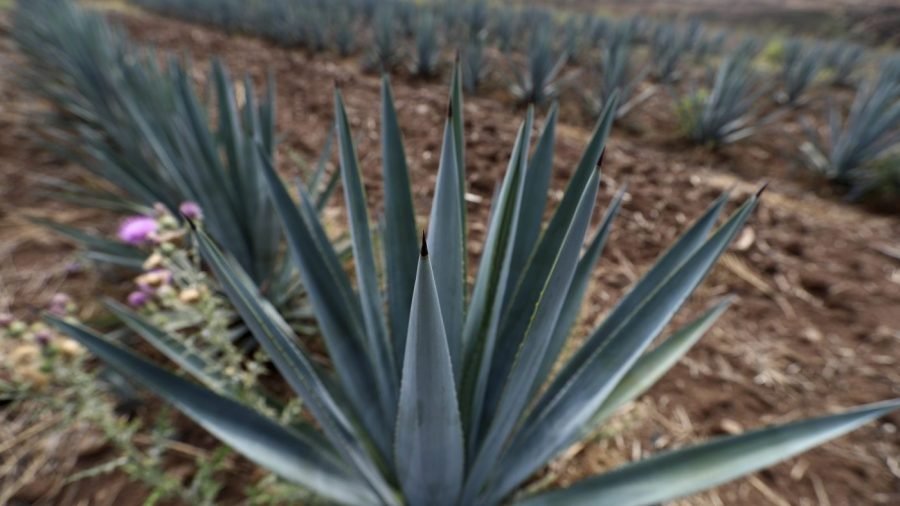
Mexico’s flourishing tequila sector is an example of the country’s success in developing vibrant export industries. But the industry also offers an unfortunate reminder of the risks export companies face from violent crime in general and the hijacking of cargo trucks in particular.
During a recent visit to the Pacific Coast state of Jalisco, I saw Mexico’s tequila bonanza firsthand. I stopped by a small still operated by a company called Tequila Aretta, as well as Jose Cuervo’s massive distillery, the epicenter of production that led to $2.5 billion in revenues in 2024.
I sipped samples of flavorful, smoky, amber-hued tequila reposado and añejo and drove through fields lined with endless rows of tall, spiky agave azul plants. I watched heavy trucks rumbling along country roads, moving goods to the state’s major highways, towards Mexico’s major ports and up to the U.S. for export.
Mexico’s tequila exports are now a $3.2 billion-a-year industry. Mexico’s success as exporter is part of the reason why truck crossings from Mexico to the U.S. tripled from just 1.8 million in 1993 to 5.9 million in 2024.
But every bottle of tequila shipped out of Jalisco — including the exquisite Jose Cuervo Reserva de la Familia Extra Anejo I sampled while there — is now facing serious risk before it reaches customers in the U.S. and other markets. Unfortunately, Mexico’s export success story is being undermined by persistent problems with roadway security and from armed hijackers.
In January, police in the state of Veracruz in eastern Mexico recovered a truck that was stolen while transporting $128,000 worth of tequila. In December 2021, hijackers in the state of Jalisco intercepted a truck carrying 30,000 liters of tequila, assaulted the driver and stole the truck and cargo. In July 2020, gunmen in Jalisco used a truck to block the road in front of a truck carrying a shipment of tequila and hijack the vehicle to steal the shipment. (Police later recovered the truck and merchandise).
These incidents highlight a broader problem in Mexico of persistent violent crime and organized crime activity in many of the country’s top nearshoring states.
According to Mexico’s private security industry association, 15,937 cargo truck hijackings occurred in Mexico in 2024, up 9 percent from 2023. Within the insurance industry, Mexico is widely considered to be the world’s worst hotspot for cargo truck hijacking.
Reliance Partners (where I am executive vice president) compiles and analyzes data published by Mexico’s federal government, showing that the bulk of these hijackings occur in central Mexico in the industrial zone surrounding Mexico City, rather than in border cities such as Tijuana and Ciudad Juarez.
In 2024, food and drinks were the most commonly stolen product in cargo truck hijackings in Mexico, accounting for nearly a third of all incidents.
The hijacking issue reflects broader concerns affecting foreign companies in Mexico. In 2024, the World Justice Project ranked Mexico in 118th place in its Rule of Law Index, and listed Mexico among the world’s worst countries in the categories of order, security and absence of corruption.
While homicide totals have declined in recent years, Mexico remains among the world’s most violent countries. In 2024, six of the top 10 most violent cities on earth were in Mexico.
Shortly after taking office in October 2024, President Claudia Sheinbaum met with the country’s powerful CCE business chamber to discuss plans for improving highway security and better protecting companies moving products on Mexico’s roadways.
In December, Sheinbaum announced the implementation of a strategy called Operation Balam and directed Mexico’s National Guard to work directly with private-sector companies to help escort trucks in high-risk zones. More broadly, Sheinbaum has promised to dismantle Mexico’s organized crime groups by focusing on improving police intelligence and investigative capacity.
Sheinbaum is still just over six months into her first year in office. She has done an admirable job in working to negotiate with the Trump administration, trying to protect Mexican exporters from punitive tariffs. I know from conversations I’ve had with executives in Mexico that several of Jalisco’s top tequila producers have purchased comprehensive insurance policies to protect their merchandise as it is moved over the U.S. border.
But many small and mid-size distilleries (as well as a wide range of other export-focused manufacturing companies) still face considerable risk from loss to robbery or hijacking.
Mexico’s tequila industry is a success story that needs to be protected. President Sheinbaum still needs to do more to improve roadway security and shield Mexico’s thriving tequila business from highway robbers.
Mark Vickers is executive vice president and head of international logistics at Reliance Partners.


